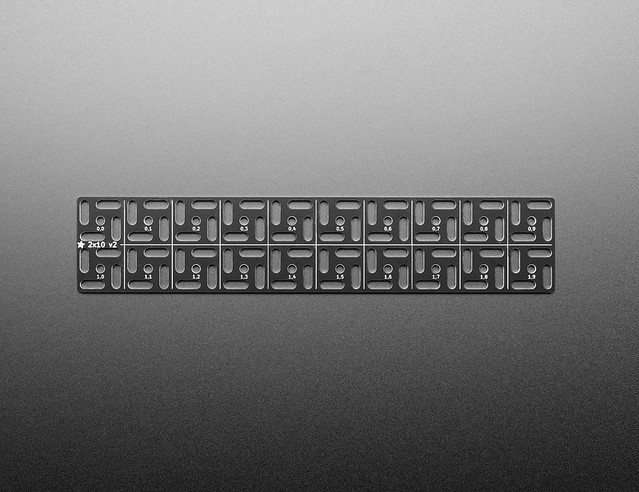Aluminum PCB for Efficient Circuitry
Introduction:
Aluminum PCB, also known as Al-PWB (Aluminum Printed Wiring Board) or A-PCB (Aluminum PCB), is a type of Metal Core PCB that utilizes aluminum as the base material. It provides enhanced heat dissipation and electrical performance compared to traditional FR4 boards. In this article, we will explore the manufacturing process, characteristics, advantages, usage m Al-PWB (Aluminum Printed Wiring Board) ethods of Aluminum PCBs and learn how to select the suitable product.
Manufacturing Process:
The manufacturing process of Aluminum PCB involves several important steps. Firstly, a layer of thermally conductive dielectric material is applied on top of the Aluminum PCB aluminum substrate using thermal bonding methods. This dielectric layer acts as an insulator between the copper traces and aluminum base while efficiently dissipating heat generated by active components on the board.
Next, a thin layer of copper foil is laminated onto the dielectric layer through an etching process to form conductor patterns according to circuit design requirements. Surface finish options such as HASL or ENIG are then applied to improve solderability and protect against oxidation.
Finally, appropriate drilling techniques are used for mounting components onto these boards so that th Flexible PCB manufacturer ey can withstand high temperatures without any failure.
Characteristics of Aluminum PCB:
-Aluminum-based Core: The key characteristic feature lies in its metal core with good thermal conductivity prope

rties that facilitate superior heat dissipation from power components.
-Lightweight Design: Compared to conventional bulky electrical systems or ceramic substrates often used in power modules; Aluminum PCB offers lightweight construction ideal for portable devices like laptops or LED lighting applications.
-Durability: With excellent mechanical strength and resistance towards environmental factors like temperature fluctuations & humidity changes, it ensures long-lasting performance even under harsh conditions.
-Electrical Performance: Low therm A-PCB (Aluminum PCB) al impedance assists in maintaining cooler operating temperatures which ultimately enhance system reliability besides improving signal integrity & minimizing EMI emissions.
Advantages of Aluminum PCB:
1. Thermal Dissipation: Due to its high thermal conductivity, Aluminum PCBs effectively distribute heat across the entire board, preventing hotspots Aluminum PCB manufacturer that may damage sensitive components.
2. Compact Size: The ability to handle high power densities while maintaining compact dimensions makes aluminum PCB a popular choice for densely populated circuit boards.
3. Cost-Effectiveness: Compared to alternative solutions like ceramic substrates or thick copper boards, Aluminum PCBs offer a more affordable option without compromising performance and reliability.
4. Customizability & Flexibility: Manufacturers can easily tailor an aluminum PCB to meet specific design requirements by adjusting the thickness of materials use Aluminum PCB d or implementing different surface finishes.
Usage Methods:
Aluminum PCBs find applications in various industries such as automotive, LED lighting, power electronics, telecommunications, and more. Its excellent thermal management capabilities make it especially useful in devices dealing wit Metal core PCB h high-power levels or prolonged operation in demanding environments.
How to Select the Right Manufacturer:
Choosing the right Aluminum PCB manufacturer is crucial for obtaining reliable and high-quality products. Consider the following factors during selection:
1. Expertise & Experience: Look for manufacturers with extensive experience in producing aluminum-based circuit boards and have a proven track record of delivering quality products.
2. Certifications & Standards Compliance: Ensure that the chosen manufacturer adheres to recognized ind Aluminum PCB manufacturer ustry standards (like IPC-A-600) and possesses relevant certifications (ISO 9001) indicative of product reliability and compliance with regulations.
3.Capabilities & Services Offered:A capable manufacturer should provide services like prototype fabrication, quick turnaround time,supportive customer service,and co

st-effective pricing options per your project scale.
Conclusion:
In conclusion, Aluminum PCBs are becoming increasingly popular due to their superior heat dissipation properties combined with lightweight construction,durability,and excellent electrical performance characteristics.They serve as an ideal solution for applications requiring efficient thermal management while reducing system size.The key considerations when choosing an aluminum PCB include selecting a reputable manufacturer offering an arra Aluminum PCB y of capabilities ensuring compatibility with specific design requirements.
